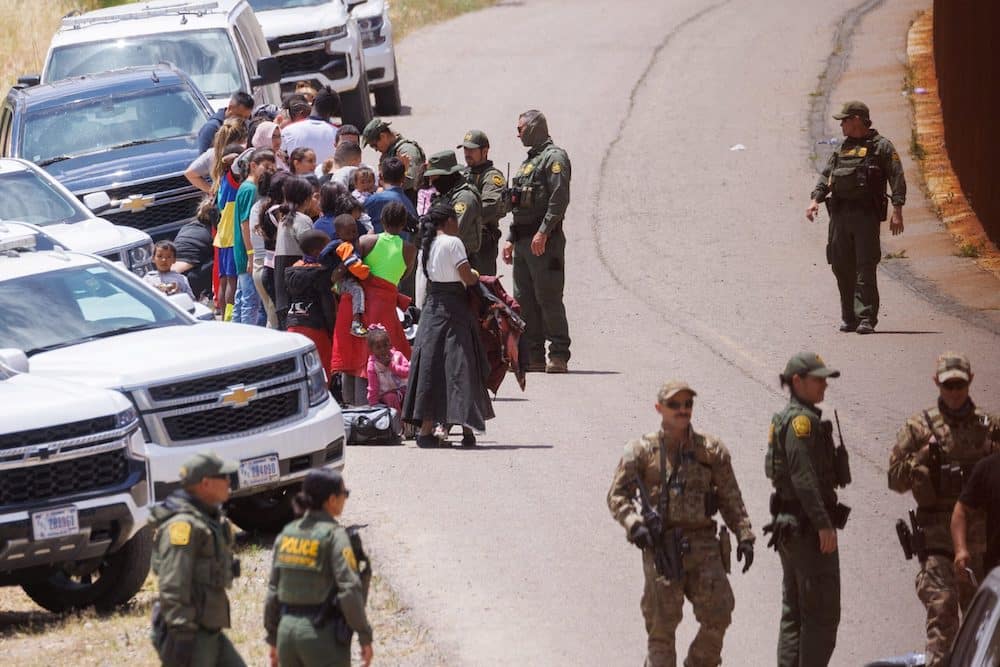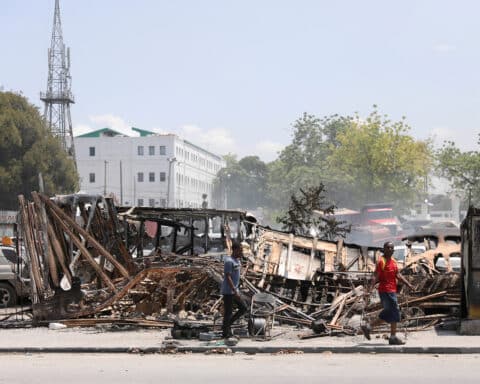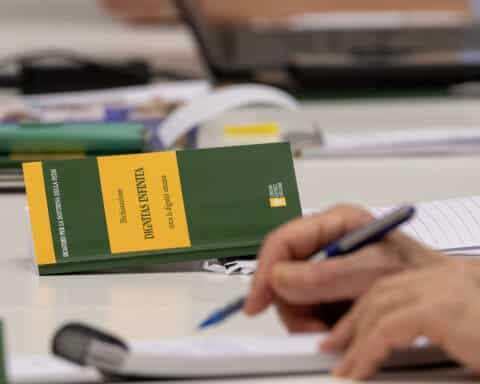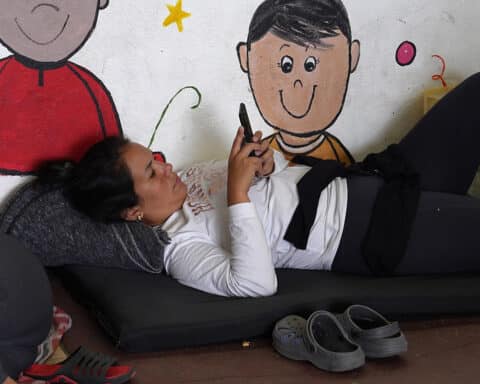On May 1, Mayor Oscar Leeser declared a state of emergency in the border city of El Paso, Texas. His concern was to ensure that hundreds — perhaps thousands — of migrants could be accommodated in the city. “This is temporary housing,” Leeser said. “We do not provide permanent housing for anyone.”
Photos and videos of El Paso have gone viral online in recent days. One video, posted on Twitter just after midnight on May 2, shows hundreds of people sleeping outside Sacred Heart Catholic Church. For block after block, sidewalks and alleys are lined with migrants, with people occupying nearly every available patch of concrete and asphalt. Many of those seeking asylum near Sacred Heart are men coming from Venezuela, but there are also women and children from Guatemala, Ecuador and other countries.
Portable bathrooms and other temporary services are being provided at Sacred Heart. Leeser said he wants to make sure asylum-seekers are treated with “dignity and respect.” But the mayor also insisted that city officials would enforce laws that prohibit camping on streets and elsewhere.
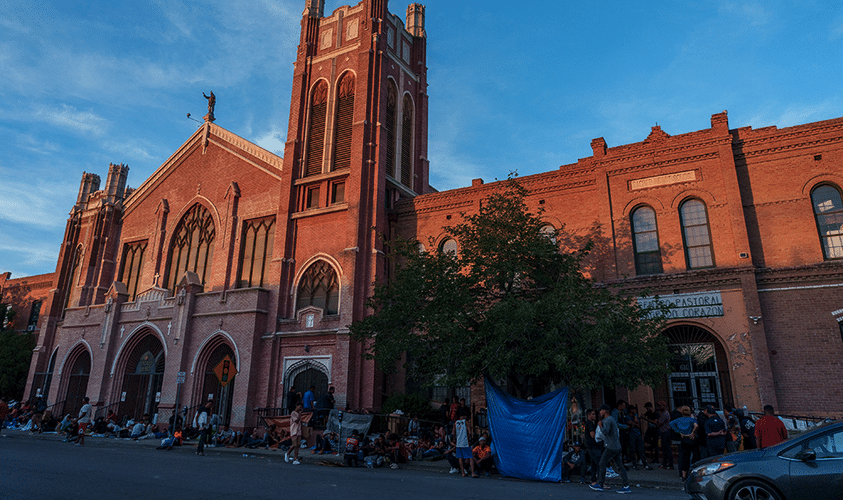
On May 11, an immigration policy known as Title 42 will expire. The policy was initiated in 2020 during the COVID-19 pandemic to enable U.S. border officials to expel migrants immediately in the name of public health. Begun as a health measure to curb transmission of the novel coronavirus, Title 42 has expedited the expulsion of some 1 million migrants. The policy empowered the Department of Homeland Security to return asylum-seekers, including women and children, to their countries of origin, depriving those vulnerable people of necessary safety and protection.
The expiration of Title 42 is a good thing. Title 42 was a temporary measure, adopted in a time of national need, and it should not continue to be applied for an indeterminate period of time to buttress our failing immigration system. Bad laws only beget bad laws, and we are glad to see this one go.
But the end of Title 42 of course does not alleviate continuing immigration challenges. On May 1, Border Patrol Chief Paul Ortiz tweeted that in the past 72 hours, his agents had made 22,220 apprehensions and seized more than 800 pounds of methamphetamine, in addition to confiscating hundreds of pounds of other illegal substances and various firearms. In Brownsville, Texas, on May 7, a driver crashed into a crowd outside of a migrant center, killing eight and injuring 10 others. Witnesses say the driver shouted anti-migrant messages before he was detained.
These events and others show that measures must continue to be taken to ensure safety and security at the border. Still, Pope Francis reminds us that we cannot abandon the Gospel call to care for the least of these, especially out of fear.
“I realize that some people are hesitant and fearful with regard to migrants. I consider this part of our natural instinct of self-defense,” Pope Francis wrote in his 2020 encyclical Fratelli Tutti. “Yet it is also true that an individual and a people are only fruitful and productive if they are able to develop a creative openness to others. I ask everyone to move beyond those primal reactions because ‘there is a problem when doubts and fears condition our way of thinking and acting to the point of making us intolerant. … In this way, fear deprives us of the desire and the ability to encounter the other” (No. 41).
In a letter sent to lawmakers in Washington urging them to reject an immigration bill that would codify much of the regulations of Title 42, Bishop Mark J. Seitz of El Paso, Texas, chairman of the U.S. Conference of Catholic Bishops’ Committee on Migration, addressed the need to make sure our borders are safe. “We do not question the good intentions of lawmakers who seek to enact legislation that would secure our nation’s borders,” he wrote. “Indeed, we join in the call to enact effective and humane border management as part of a framework of comprehensive immigration reforms.”
Thousands of Texas National Guard members and Texas Department of Public Safety troopers have been deployed to ensure security as the era of Title 42 comes to a close. But what about the men and women and children sleeping on the steps of Sacred Heart? Public officials, NGOs and other organizations should not hesitate to intervene to protect the God-given, inalienable human dignity of those who have crossed into the United States.
While it is the duty of lawmakers to discuss and determine the policies and politics of immigration without reference to particular immigrants — largely, men and women who are looking to provide a better life for themselves and their families — we, as Catholics, cannot ignore the reality of the situation facing our brothers and sisters who are being forced into deplorable and inhumane living conditions. Each of them bears the face of Christ, and we must respond to the call to lovingly provide for the human beings suffering at our doorstep.
Our Sunday Visitor Editorial Board: Father Patrick Briscoe, Gretchen R. Crowe, Scott P. Richert, Scott Warden, York Young

